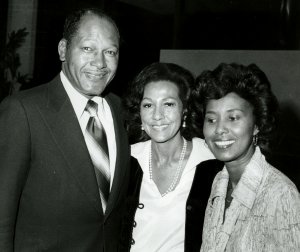 Bradley Effect- (n.) When an African- American political candidate receives far less support than polls had indicated, attributed to voters claiming to support the candidate to appear accepting or out of fear of being perceived as racist.
Bradley Effect- (n.) When an African- American political candidate receives far less support than polls had indicated, attributed to voters claiming to support the candidate to appear accepting or out of fear of being perceived as racist.
Origin- In 1982, popular long time LA mayor Tom Bradley ran for California governor on the Democratic ticket. Polls prior to election night had him leading by 12 points, yet he lost by one percent.
Before the election, opposing campaign manager Bill Roberts predicted Bradley's numbers were inflated because voters gave inaccurate responses out of fear of appearing racist to pollsters. He was forced to resign over his comments.
Other examples- The effect was seen throughout the 1980s
Douglas Wilder had a double digit lead in polls for the Virginia Senate race only to win by a point. The same was true for David Dinkins when he defeated Rudy Giuliani in 1989 for NYC mayor.
In fact, many pollsters maintain that the only time there is a double digit swing between polls and results is when a minority candidate is involved, and the Bradley effect is its explanation.
Which brings us to New Hampshire.
Every poll (save one) had Barack Obama leading Hillary Clinton by 8- 12 points heading into the election, yet he lost by three. That night, I thought about the Bradley effect, but dismissed it because there was no evidence of it in Iowa. And if there is any place whiter than New Hampshire, it's Iowa.
But then I remembered that Iowa does not have a primary, but a caucus. In a caucus, voters gather in a large room and publicize whom they support by gathering in groups. So, a caucus is really nothing more than a poll on a larger scale. Instead of having to impress a pollster, voters are faced with family, friends and neighbors.
The Bradley effect may have been in full force that night, but to Obama's benefit.
When voters stepped into the privacy of the voting booth, things changed. To me, this is as good an explanation as any as to why New Hampshire polls (even ones taken after Hillary's "breakdown") were so off.
Thursday, January 10, 2008
Political Dictionary: Bradley Effect
Posted by
Chris Meehan
Labels:
2008,
barack obama,
Bradley Effect,
Political Dictionary
Subscribe to:
Post Comments (Atom)


1 comment:
How interesting!
Post a Comment